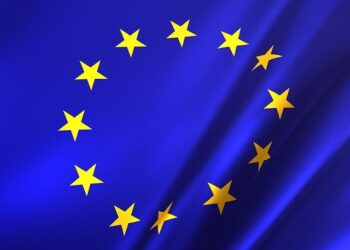In a significant progress within the European energy landscape, Slovakia and Hungary have voiced strong opposition to a European Union proposal aimed at phasing out Russian gas imports by 2027. The two Central European nations, heavily reliant on Russian energy sources, argue that such a move could jeopardize their energy security and economic stability. As the EU seeks to bolster its energy independence in the wake of geopolitical tensions, the dissent from these member states underscores the complex balancing act between collective action and national interests. This article delves into the implications of Slovakia and Hungary’s resistance, the broader context of EU energy policy, and the challenges faced by member states in transitioning to alternative sources of energy amid a shifting geopolitical landscape.
Slovakia and Hungary Reject EU’s 2027 Deadline for Halting Russian Gas Imports
In a move that underscores the ongoing energy tensions within the European Union, Slovakia and Hungary have firmly opposed the EU’s proposed deadline of 2027 for phasing out imports of Russian gas. Both nations argue that such an abrupt cessation would severely impact their economies and energy security. Prime Minister Robert Fico of Slovakia emphasized that the country relies heavily on Russian gas as an energy source, noting that a swift transition could lead to energy shortages and increased prices for consumers. Similarly, Hungarian officials pointed out that the country’s energy strategies are intricately linked to its Russian gas contracts.
The opposition from Slovakia and Hungary highlights a broader division among EU member states regarding energy policy and dependency on Russian resources. Both countries advocate for a more gradual approach, allowing for the development of alternative energy sources and infrastructure before cutting ties with Russia. Key points of their argument include:
- Economic Dependency: A large portion of Slovakia’s and Hungary’s energy supply comes from Russia, with little immediate alternatives available.
- Energy Security: A quick phasing out may jeopardize the reliability of energy supply during transitions.
- Consumer Impact: Rising energy costs could disproportionately affect households and industries.
Economic Implications of Energy Dependency in Slovakia and Hungary
The stance taken by Slovakia and Hungary against the EU’s proposal to end Russian gas imports by 2027 highlights the intricate economic dynamics at play in Central Europe. Both countries have historically relied on Russian energy to fuel their industrial sectors and meet domestic energy demands. As the EU emphasizes energy diversification and sustainability, Slovakia and Hungary are voicing concerns that immediate transitions could destabilize their economies.Key factors contributing to their opposition include:
- Economic Stability: A rapid shift away from Russian gas may provoke energy shortages, leading to potential spikes in energy prices.
- Inflationary Pressures: Energy-dependent industries are worried about the cascading effects on inflation, which would further burden consumers.
- Investment Needs: There is a pressing requirement for financial resources to develop alternative energy infrastructures, which Slovakia and Hungary believe they lack.
In order to grasp the full economic implications of energy dependency, it is indeed critical to examine how these two nations align themselves within the European energy market. Analyses indicate that while the shift towards renewable sources is necessary for long-term sustainability, the transitional period poses unique challenges that cannot be overlooked. The following table summarizes the current energy dependency levels in Slovakia and Hungary:
| Country | Gas Dependency (% of total energy consumption) | Renewable Energy Share (%) |
|---|---|---|
| Slovakia | 75% | 15% |
| Hungary | 70% | 13% |
This data illustrates a ample reliance on gas, underscoring the urgency for gradual changes that account for economic ramifications. As Slovakia and Hungary negotiate their energy futures, the balance between regional energy security and EU mandates will be a pivotal aspect of their economic policies moving forward.
Possible Alternatives and Strategies for Securing Energy Independence
Amidst the rising tensions and energy dependency on Russian gas, several nations are exploring alternatives to bolster their energy independence. By investing in renewable energy sources, such as wind, solar, and hydropower, countries can significantly reduce their reliance on fossil fuels. Transitioning to these sustainable options not only addresses energy security concerns but also aligns with global climate goals. Additionally, expanding infrastructure for liquefied natural gas (LNG) imports could offer a short-term solution for diversifying energy sources while negotiating longer-term plans.
Furthermore, strategic cooperation among European nations can amplify the effectiveness of collective efforts. Some potential strategies include:
- Enhancing energy efficiency: Promoting energy-saving technologies across industries and residential sectors.
- Regional energy agreement: Forming alliances with non-Russian gas exporters to create a more resilient energy supply chain.
- Investing in energy storage solutions: Developing advanced battery technology to store excess energy from renewable sources for future use.
To highlight the differences in energy dependency among various EU nations, the following table illustrates the percentage of gas imports from Russia in 2022:
| Country | Percentage of Gas Imports from Russia |
|---|---|
| Slovakia | 85% |
| Hungary | 75% |
| Germany | 30% |
| Poland | 0% |
Future Outlook
In conclusion, the opposition from Slovakia and Hungary to the EU’s ambitious proposal to halt Russian gas imports by 2027 highlights the complex dynamics at play within the European energy landscape. As the EU strives to reduce dependency on Russian energy sources amid ongoing geopolitical tensions, the divergent views of member states underscore the challenges of achieving a unified approach to energy security. With both countries citing economic concerns and energy supply stability, the conversation surrounding this proposal is likely to continue, prompting further negotiations and discussions within the bloc. As Europe navigates its energy future, collaborative strategies will be essential in balancing national interests with broader regional goals for sustainability and sovereignty. Stakeholders will be closely watching how this debate unfolds and its implications for the EU’s energy policy moving forward.















